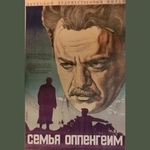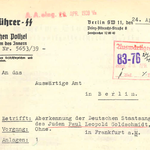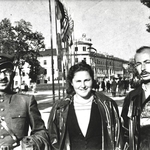BACKUP der Geschichte
The future of remembering German-Jewish history
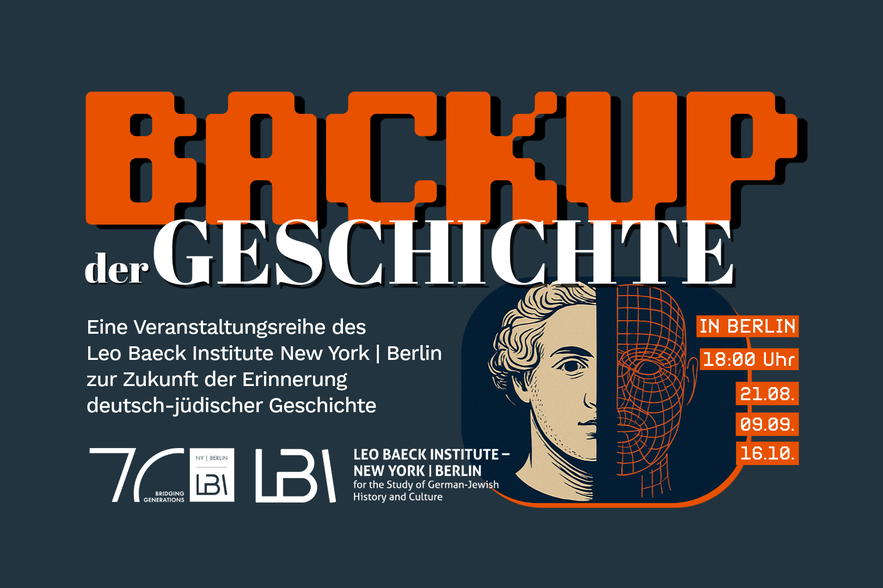
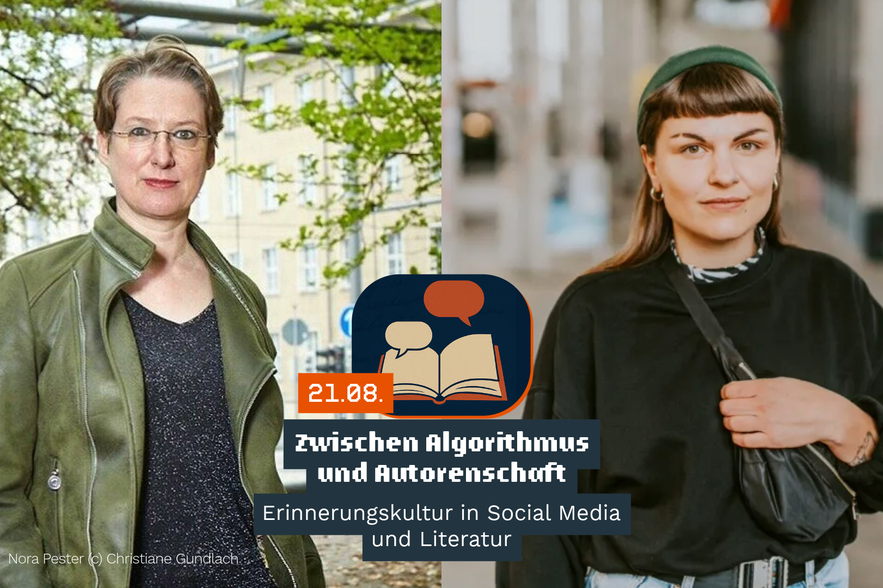
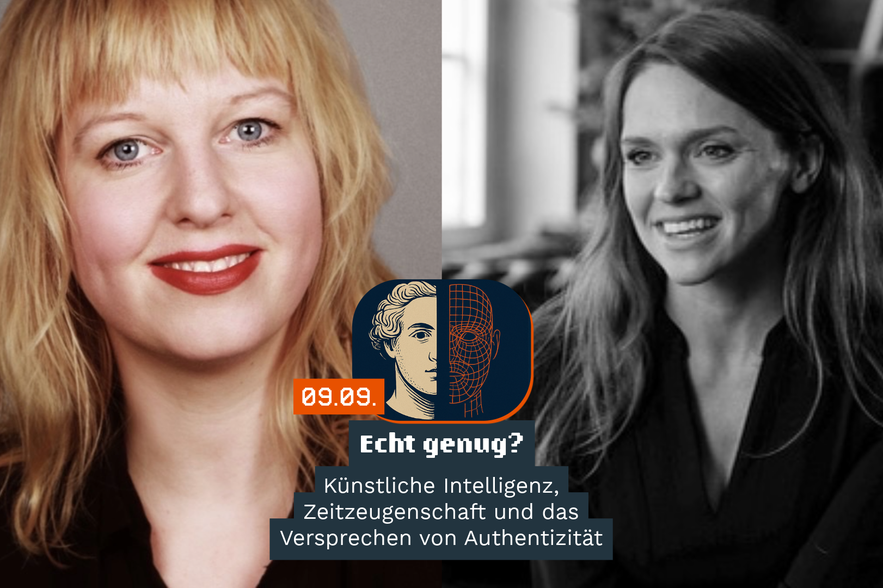
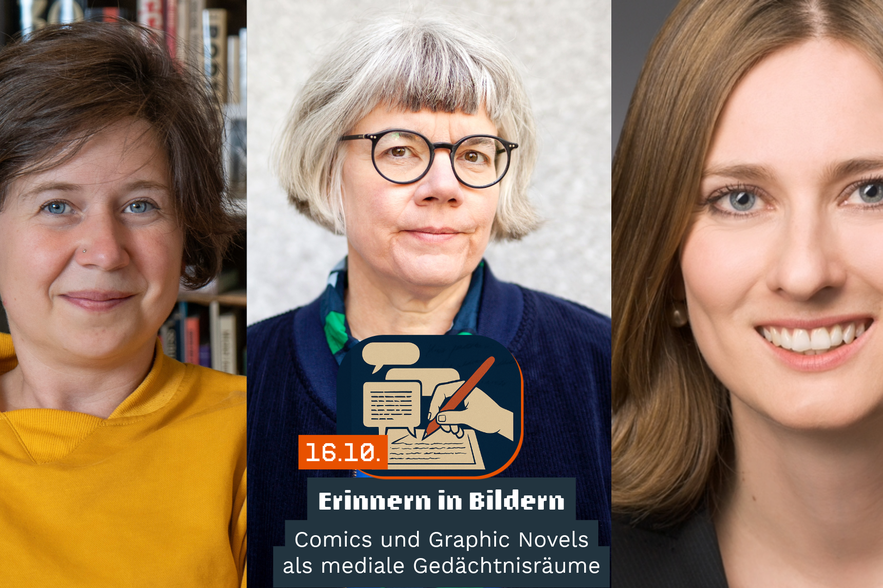
- Date/Time
- –
- Format
- In person
- Admissions
- General: Free
Telling history in the digital age.
What happens to memory when survivors are no longer present? How do facts hold their own in a world full of reels, AI and information overload?
We will discuss how historical communication works today - between social media, print and the challenges (and opportunities) of artificial intelligence.
The event series will take place in Berlin. We will inform you of the venue after registration.
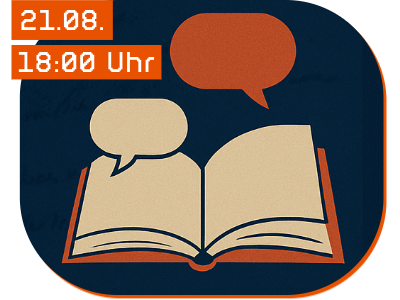
Between algorithm and authorship
Memory culture in social media and literature
With Dr. Nora Pester (Hentrich & Hentrich) and
Susanne Siegert (@keine.erinnerungskultur)
Moderated by Sharon Adler (Aviva-berlin.de)
Dr. Nora Pester, owner and publisher of Hentrich & Hentrich Verlag für jüdische Kultur und Zeitgeschichte and shareholder of CAPA Culture gGmbH, the operator of the Capa-Haus Leipzig memorial and meeting place, and spokesperson for "Tacheles. Year of Jewish Culture in Saxony 2026".
“Everything you are guaranteed NOT to learn about Nazi crimes at school”: this is the slogan of the profiles of Susanne Siegert aka @keine.erinnerungskultur. In 2020, the trained journalist began researching a former subcamp in her home country out of personal interest - today, almost 400,000 people follow her on Instagram and TikTok. In 2024, she received a Grimme Online Award for her short videos, and her book “Rethinking remembrance: How our memory of the Holocaust must change” will be published by PIPER in fall 2025.
INTERESTED? REGISTER HERE NOW: 21.8. Between algorithm and authorship: memory culture in social media and literature
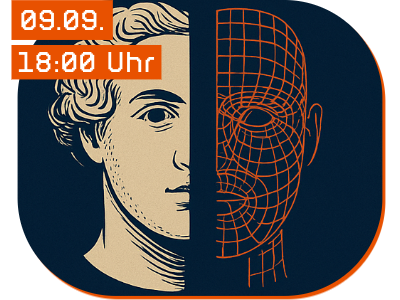
Real enough?
Artificial intelligence, contemporary witnesses and the promise of authenticity
With Dr. Katalin Krasznahorkai ("In Echt? - Virtuelle Begegnung mit NS-Zeitzeug:innen") and Ruth-Anne Damm (Zweitzeugen e. V.)
Moderated by Stephan-Andreas Casdorff (Tagesspiegel)
Katalin Krasznahorkai is an art historian, curator and author with over twenty years of experience in the conception and management of international research and cultural projects. After studying art history at Eötvös Lorand University Budapest, Humboldt University Berlin and the University of Vienna, she completed her doctorate at the University of Hamburg in 2015. Having held positions at the Ludwig Museum Budapest, the Collegium Hungaricum Berlin and the University of Zurich, she has been the curatorial director at the Brandenburg Society for Culture and History and program director of the Brandenburg Museum for Future, Present and History in Potsdam since 2022, where she also heads the project “In Echt? Virtual Encounters with Nazi Eyewitnesses”.
Ruth-Anne Damm is co-founder and managing director of the multi-award-winning association ZWEITZEUGEN e. V. As a second witness, she is dedicated with great passion and a clear vision to an active culture of remembrance and educational work against anti-Semitism and group-based misanthropy - increasingly also using digital contemporary witnesses. Previously, she worked as a strategic brand consultant for Borussia Dortmund and Evonik Industries, among others, and in the NGO education sector for more equal opportunities.
INTERESTED? REGISTER HERE NOW: 9.9. Real enough? Artificial intelligence, contemporary testimony and the promise of authenticity
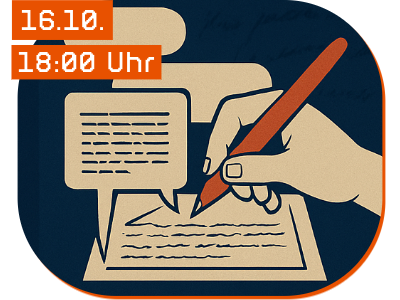
Remembering in pictures
Comics and graphic novels as media spaces of memory
With Nathalie Frank, Birgit Weyhe ("Wie geht es dir? 60 gezeichnete Gespräche nach dem 7. Oktober") und Dr. Stefanie Fischer ("Oberbrechen: A German Village Confronts Its Nazi Past")
Moderated by Sharon Adler (Aviva-berlin.de)
Nathalie Frank is a French comics author and journalist who has lived in Berlin since 2011. In her work, she questions the connection between individual fate and political history. She is also one of the initiators of the comic project "Wie geht es dir? Cartoonists against anti-Semitism, hatred and racism".
The Hamburg-based comic artist Birgit Weyhe has received numerous awards for her work and her books have been translated into several languages. She is also one of the initiators of the initiative "Wie geht es dir? Illustrators against anti-Semitism, hatred and racism".
Stefanie Fischer, Dr. phil., is a research associate at the Center for Research on Anti-Semitism at the Technical University of Berlin. Her publications include "Jewish Cattle Traders in the German Countryside. Economic Trust and Antisemitic Violence, 1919-1939“ (Indiana University Press, 2024) and, together with Kim Wünschmann, ”Oberbrechen. A German Village Confronts its Nazi Past" (Oxford University Press, 2025). Since 2024 she is co-editor of the Leo Baeck Institute Year Books (Oxford University Press).
INTERESTED? REGISTER HERE NOW: 16.10. Remembering in pictures: Comics and graphic novels as media spaces of memory
About the moderators
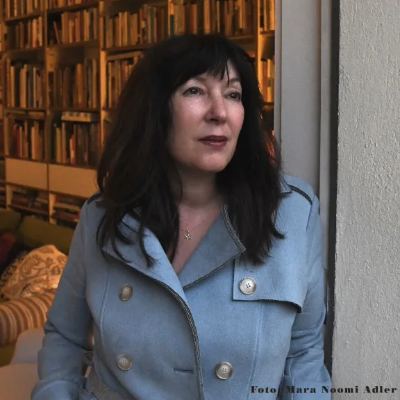
Sharon Adler is a journalist, publicist and photographer. She is the founder and editor of the women's online magazine AVIVA-Berlin and co-editor of the interview series “Jewish Women in Germany after 1945” in the Deutschland Archiv Online of the Federal Agency for Civic Education. In it, she portrays Jewish women of different generations and life paths. As Chairwoman of the Board of the ZURÜCKGEBEN Foundation, she is committed to Jewish women in the arts and sciences. For the Leo Baeck Institute - New York | Berlin, she has moderated panels and discussions on topics such as exile, resilience and the culture of remembrance.

Stephan-Andreas Casdorff has been writing for the Tagesspiegel since 1999 and was editor-in-chief together with Lorenz Maroldt from 2004 to 2018. He was editor from September 2018 to the end of 2024 and has been editor-at-large since 2025. He comments on political events, both in the Tagesspiegel and on radio and television, as well as at various events.
